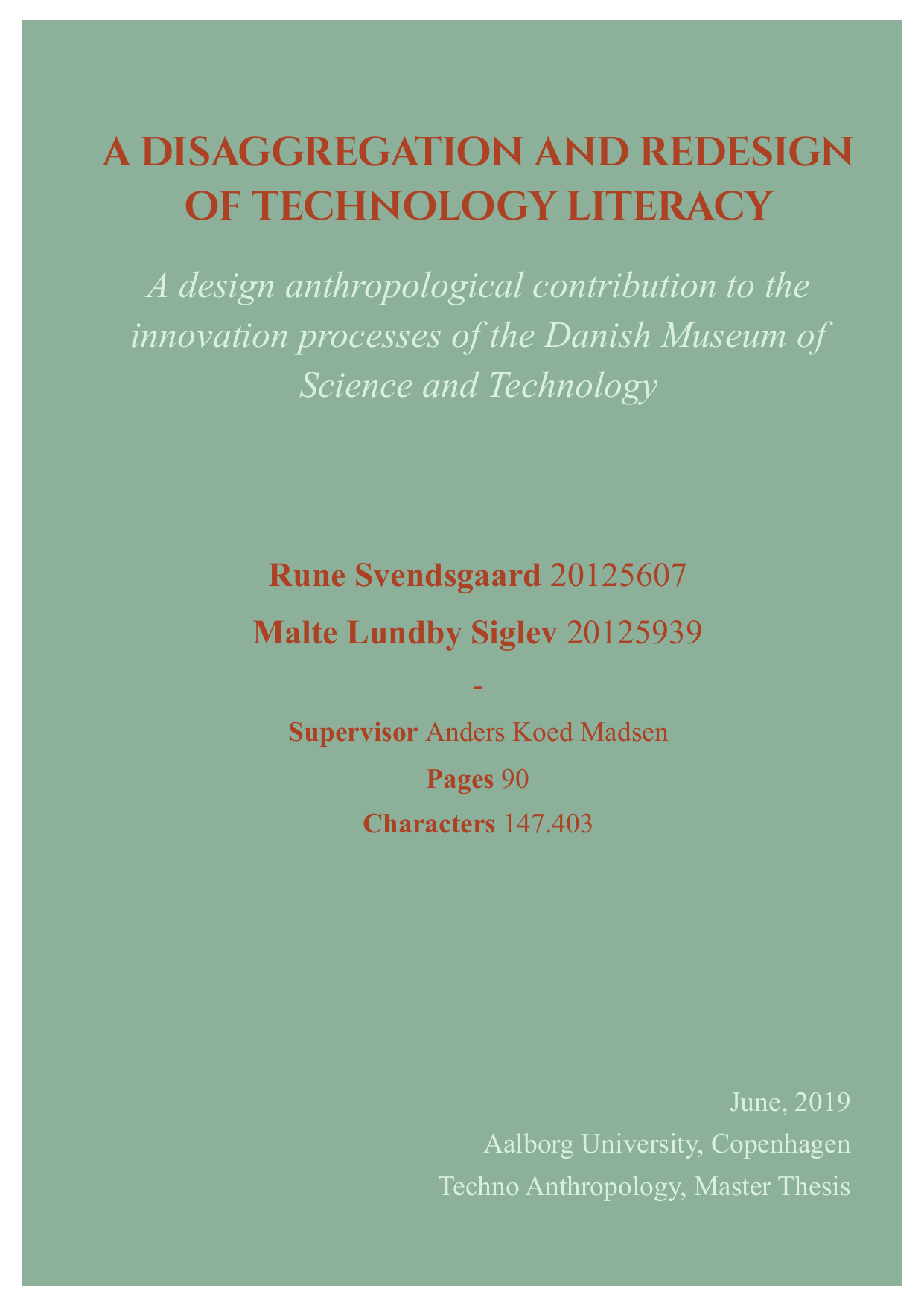
A disaggregation and redesign of technological literacy: A design anthropological contribution to the innovation processes of the Danish Museum of Science and Technology
Authors
Term
4. term
Education
Publication year
2019
Submitted on
2019-05-30
Pages
90
Abstract
Det følgende kandidatspeciale omhandler et designbidrag til Danmarks Tekniske Museums innovationsprocesser. Specialet undersøger fænomenet teknologisk dannelse, der i organisationen bag museet fremstår som et normativt sigte for formidlings-strategien og som således er et udgangspunkt for en forestående innovation. Data er indsamlet kvalitativt gennem et feltarbejde med metoderne interviews, observationer og workshop som de bærende søjler. Teoretisk forholder specialet sig til problematikken gennem aktør-netværksteori (ANT), post-fænomenologi samt Design Thinking. Analysen leder til et design værktøj, der er udviklet til at understøtte museets innovationsproces. Værktøjet er konstrueret med udgangspunkt i fem parametre, der tilsammen konstituerer teknologisk dannelse. Således kan værktøjet bruges til at evaluere diverse udstillinger eller dele af udstillinger med udgangspunkt i at vurdere, hvordan materielle og humane aktører påvirker oplevelsen og formidlingen af teknologisk dannelse. Afslutningsvidst peger specialet på fire konkrete cases, hvor teknologisk dannelse bliver evalueret gennem designværktøjet. Værktøjet er udviklet ud fra designteorien om infrastruktur, hvorfor det kan bidrage til museets innovation processer nu og i fremtiden.
The following master thesis concerns a design contribution to the innovation processes of the Danish Museum of Science and Technology. The thesis investigates the phenomenon technological literacy, which in the organisation of the museum is a normative aim for the dissemination strategy and thus a point of departure in a forthcoming innovation. Data is collected qualitatively through field work with interviews, observations and workshop as the main methods. Theoretically the thesis analyses the problem through actor-network theory (ANT), post-phenomenology and Design Thinking. The analysis leads to a design tool that is developed to support the innovation processes of the museum. The tool is constructed with point of departure in five parametres, which constitute technological literacy. Hence the tool can be used to evaluate various exhibitions or parts of exhibitions to discuss, how material and human actors affect the experience and dissemination of technology literacy. Concludingly the thesis offers four cases, where technological literacy is evaluated via design tool. The tool is developed with reference to the design theory of infrastructure to contribute to the innovation processes of the museum now and in the future.
Keywords
Documents
